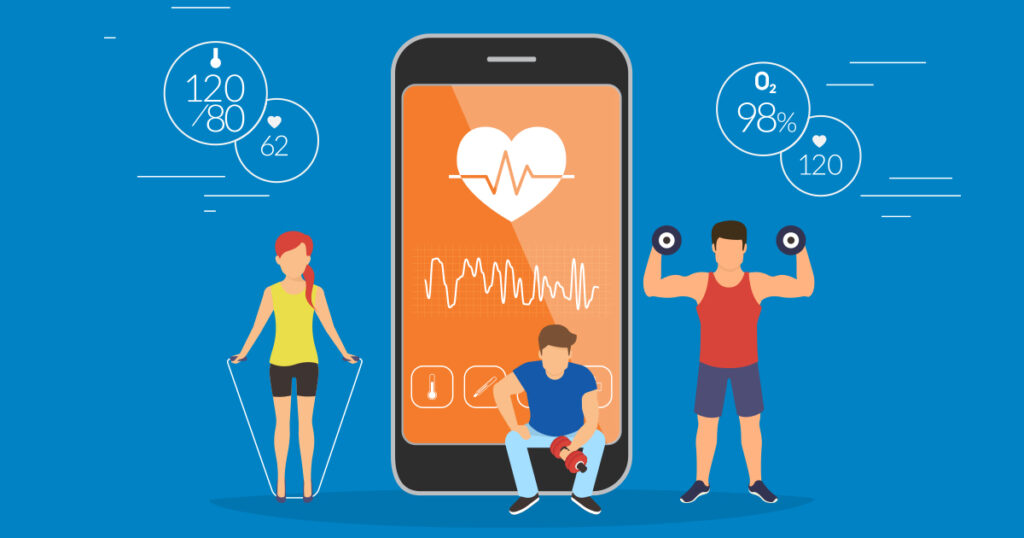With each new year comes another set of New Year’s resolutions, many of which inevitably revolve around adopting better health habits. And while some of these get-fit resolutions do not bring a great deal of success, there is good news: With each passing year, the technological tools that can help support truly successful outcomes get more and more advanced.
Now that it’s 2020 and a new decade has begun, those in training might want to consider these cutting-edge tech tools to help make this year’s health-related resolution become a long-term reality:
1. Health-Education Websites
While, at least for those of us without medical backgrounds, consulting “Dr. Google” can often lead to a faulty self-diagnosis (which is among a long list of good reasons to maintain a healthy, ongoing conversation with a professional health provider), the internet also offers a wealth of websites that provide great information regarding health-related topics and maintaining a healthy lifestyle. Among the topics for which helpful and highly trustworthy websites are available are general health, cancer, diabetes, eye disease, heart disease and more. For a list of vetted websites on a range of health-related topics, consult the Medical Laboratory Association’s “MLA Top Health Websites” web page.
2. Wearable Devices
With today’s smartwatches and other wearable activity trackers, health-conscious consumers can put an array of personal health info and inspiration within arm’s reach — literally. Worn right on the wrist, modern devices like the Apple Watch, the Fitbit Versa and the Garmin Forerunner offer easy access to health monitors, alerts and information, including features such as workout tracking, heart-rate monitoring, step counting, calorie-burn estimates, sleep tracking and more. Some can even read your heart’s electrical signals, generating a basic electrocardiogram with the touch of a finger.
3. Health and Fitness Apps
For those who might not want to wear their digital devices, an array of health-related tech tools can still be kept within easy reach — especially since many people carry smartphones with them everywhere they go. Top health and fitness apps in 2020 include MyFitnessPal, which helps users balance their caloric intake and their physical activity, among other things; FIIT, known as the “Netflix of fitness apps,” which offers access to a collection of in-demand fitness trainers and interactive fitness classes, plus provides a heart-monitoring chest strap that helps users track their progress during workouts; Fooducate, which helps users count calories, track their diets and know more about what they’re eating, even offering personalized nutrition grades for users based on the app’s database of food products that can be identified by barcode scanning; and Sleep Cycle, a smart alarm clock and sleep-analysis app that, among other things, tracks users’ sleep patterns, offers helpful sleep tips and can awaken users gently when they’re in a light sleep phase — so they rise feeling as refreshed as possible.
4. Patient Portals
Becoming more popular among insurers and healthcare providers, patient portals encourage people to become more engaged with their well-being by providing them with direct access to their personal health information/electronic health records via a secure, personalized web page. Often these pages have direct access to their healthcare providers through direct messaging with their physicians and nurses. The information available can include notes from recent doctor visits, information on medications, immunization summaries, lab results and more. Further, some patient portals allow patients to communicate with their healthcare providers, schedule appointments and request prescription refills.
5. Other Connected, Health-Related Devices
With the Internet of Things constantly growing, the phenomenon has made its way into the health arena with a range of connected devices now available to help patients improve their well-being. The possibilities here include diabetes-management devices like iHealth’s Smart wireless blood glucose meter, which works with a smartphone to test blood samples and provide helpful charts, reminders and graphs that assist diabetics in maintaining desired blood sugar levels; smart toothbrushes such as the kid-friendly Kolibree smart toothbrush,which incorporates an app to teach children good brushing habits while making the experience fun with integrated games; and medication-tracking systems like the PillDrill smart pillbox, which integrates with a smartphone to help ensure that patients take their medications as directed.
Would a new smartphone help you better pursue your fitness goals in 2020? FTC offers the latest iPhones and a range of other smartphones, including top-of-the-line Samsung and LG models. Visit ftc.net today to explore our latest money-saving promotions.




